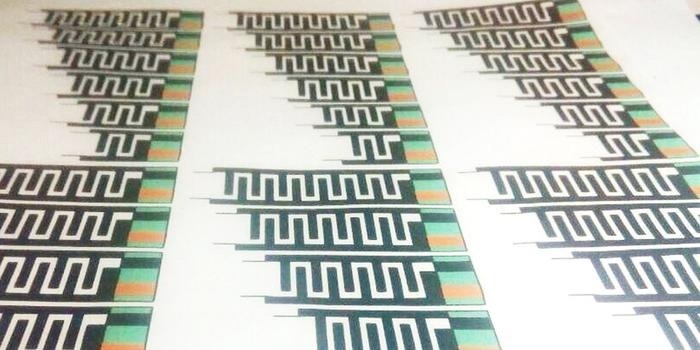Reviewed by Lexie CornerJun 6 2025
A recent study published in Small explores the use of probiotics, which are live microbes that can offer health benefits when consumed and are otherwise harmless.
 Professor Seokheun “Sean” Choi says the hardest part about making transient electronics is the battery. Image Credit: Seokheun “Sean” Choi
Professor Seokheun “Sean” Choi says the hardest part about making transient electronics is the battery. Image Credit: Seokheun “Sean” Choi
Binghamton University Professor Seokheun “Sean” Choi has spent the past 20 years studying disposable “papertronics.” One of the most challenging parts of developing transitory electronics is designing a suitable battery.
Transient electronics can be used for biomedical and environmental applications, but they must disintegrate in a biosafe manner.
Seokheun “Sean” Choi, Professor and Faculty Member, Department of Electrical and Computer Engineering, Thomas J. Watson College of Engineering and Applied Science, Binghamton University
“You don’t want to have toxic residues inside your body. That type of device is called bioresorbable electronics. For transient or bioresorbable electronics, the key challenge is the power source - but most power sources, like lithium-ion batteries, include toxic material,” added Choi.
Choi and his student research team applied knowledge from their earlier work on biobatteries to explore this new concept.
The first dissolvable microbial fuel cell was developed by Maedeh Mohammadifar, Ph.D. ’20, while she was a student in Choi's Bioelectronics and Microsystems Lab at Binghamton University.
“We used well-known electricity-producing bacteria, which is within biosafety level 1, so it is safe - but we were not sure what would happen if these bacteria were released into nature. But whenever I made presentations at conferences, people would ask: ‘So, you are using bacteria? Can we safely use that?” added Choi.
The most recent study, led by Maryam Rezaie, a current Ph.D. student, used a prepared combination of fifteen probiotics.
“It’s well documented that probiotics are safe and biocompatible, but we were not sure if those probiotics have electricity-producing capability. There was a question, so she did a lot of experiments on that,” stated Choi.
He said that preliminary findings were not encouraging , but added, “We didn’t give up. We engineered in an electrode surface that might be preferable to the bacteria, using polymer and some nanoparticles to hypothetically improve the electrocatalytic behavior of probiotics and give them a boost.”
The rough and porous structure of the modified electrode created good conditions for bacteria to attach and grow. This improved the microorganisms' ability to generate electricity.
Power output and battery life increased when the dissolvable paper was coated with a low pH-sensitive polymer. This coating allows the device to operate only in acidic environments, such as polluted areas or the human digestive system.
Although the device produced only a small amount of power, Choi considers the results a proof of concept. He sees it as a foundation for future research by himself and his students.
“Other research must be done. We used probiotic blends, but I want to study individually which ones have the extra electric genes, and how synergistic interactions can improve the power generation. Also, in this research we developed in a single unit of a biobattery. I want to contact them in series or parallel to improve the power,” concluded Choi.
Journal Reference:
Rezaie, M., et al. (2025). Dissolvable Probiotic-Powered Biobatteries: A Safe and Biocompatible Energy Solution for Transient Applications. Small. doi.org/10.1002/smll.202502633